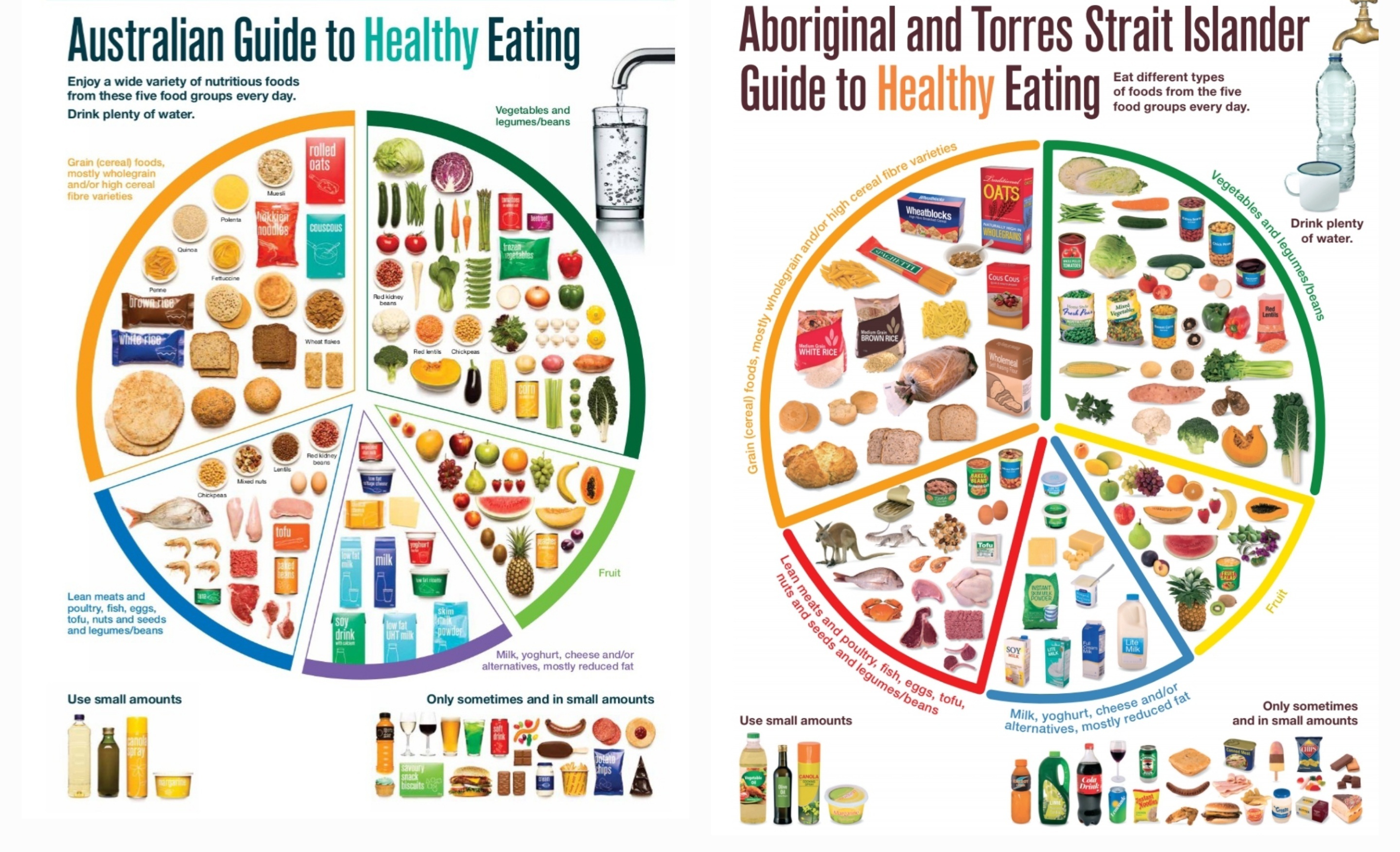I find the checklist format for dietary guidelines like Dr Gregor does to be more compelling and easier to groc. These plates make it seem like you should fret about achieving a specific balance. It’s like when people try to achieve very specific macro splits, instead of focusing on getting the things their body needs (enough proteins, essential fats, fiber).
So pie charts are the newest trend for dietary guides? I won’t miss the bullshit of the food pyramid but kinda surprised that it’s gone
Edit: I wasn’t expecting pyramid fans out there lol really don’t understand the downvotes
Yeah, the new Canada’s Food Guide is actually really good. (The one below is modeled after it, but changed to vegan foods).
Like, it seems like a reasonable, evidence-based, practical guide to healthy eating habits. (Unlike every single previous version going back to the 50s that might as well have been propaganda from the Canadian Wheat Board.) The latest revision is from 2019, iirc, and it’s the first time I’ve felt comfortable using it as the basis of classroom instruction.
That’s great news, thanks for sharing!
Ohhh boy in Australia do we have a racist one of these food things. It’s amazing how bad it is.

Take note of the taps on the right.
Us aboriginal people drink our beer out of a can not a schooner, they mocked up a can of VB which is the stereotypical aboriginals beer of choice.
Even the takeaway burger is more shit then the white Australians haha.
I even have a great 10 second video I made taking the piss out of this a while ago that I shared with my friends
I would post it here but I don’t know know how to upload video. Maybe I’ll post it to YouTube and drop a link.
That’s… Hilariously bad. Canned meats vs. fresh. Fancy ice cream vs. cheap ice cream. Everywhere you look things are shittier for the Aboriginal People’s food guide. What the fuck were they thinking? Why did they even put out a different version?
Right, we all have the same shops etc.
I really don’t understand the idea beyond in the remote communities maybe the fake packaging might look more familiar. But still the garden tap one is the worst.
It’s totally a “remote communities” thing, likely by someone who has never been to the remote communities. You want to meet people where they are and work within the context they live in.
This is meeting people where you imagine them to be.
I don’t know the context of that situation but that does look problematic.
However comparing that to this is a false equivalence as there is a significant body of research that suggests eating a whole foods plant-based diet is healthier and reduces your risk for major diseases such as heart disease, obesity, cancer.
“Anyone can follow a vegan diet – from children to teens to older adults. It’s even healthy for pregnant or nursing mothers. A well-planned vegan diet is high in fibre, vitamins and antioxidants. Plus, it’s low in saturated fat and cholesterol. This healthy combination helps protect against chronic diseases.”
“Vegans have lower rates of heart disease, diabetes and certain types of cancer than non-vegans. Vegans also have lower blood pressure levels than both meat-eaters and vegetarians and are less likely to be overweight.”
“It is the position of the Academy of Nutrition and Dietetics that appropriately planned vegetarian, including vegan, diets are healthful, nutritionally adequate, and may provide health benefits for the prevention and treatment of certain diseases. These diets are appropriate for all stages of the life cycle, including pregnancy, lactation, infancy, childhood, adolescence, older adulthood, and for athletes. Plant-based diets are more environmentally sustainable than diets rich in animal products because they use fewer natural resources and are associated with much less environmental damage. Vegetarians and vegans are at reduced risk of certain health conditions, including ischemic heart disease, type 2 diabetes, hypertension, certain types of cancer, and obesity. Low intake of saturated fat and high intakes of vegetables, fruits, whole grains, legumes, soy products, nuts, and seeds (all rich in fiber and phytochemicals) are characteristics of vegetarian and vegan diets that produce lower total and low-density lipoprotein cholesterol levels and better serum glucose control. These factors contribute to reduction of chronic disease. Vegans need reliable sources of vitamin B-12, such as fortified foods or supplements.”
“The objective of this article is to present to physicians an update on plant-based diets. Concerns about the rising cost of health care are being voiced nationwide, even as unhealthy lifestyles are contributing to the spread of obesity, diabetes, and cardiovascular disease. For these reasons, physicians looking for cost-effective interventions to improve health outcomes are becoming more involved in helping their patients adopt healthier lifestyles. Healthy eating may be best achieved with a plant-based diet, which we define as a regimen that encourages whole, plant-based foods and discourages meats, dairy products, and eggs as well as all refined and processed foods. We present a case study as an example of the potential health benefits of such a diet. Research shows that plant-based diets are cost-effective, low-risk interventions that may lower body mass index, blood pressure, HbA1C, and cholesterol levels. They may also reduce the number of medications needed to treat chronic diseases and lower ischemic heart disease mortality rates. Physicians should consider recommending a plant-based diet to all their patients, especially those with high blood pressure, diabetes, cardiovascular disease, or obesity.”
it is no longer the position of the academy of nutrition and dietetics that vegetarian, including vegan, diets are healthful, nutritionally adequate, and may provide health benefits for the prevention and treatment of certain diseases. it hasn’t been for years. you should stop spreading misinformation.
Since when? This article, last reviewed this month, pretty much says the same thing as their last published position statement.
since the paper you linked expired
edit:
all current positions of the academy
double edit:
i see you are not the one who linked the expired paper. whoops.
It’s not that they no longer support the idea of a plant-based diet, it’s more likely that plant-based diets are so overwhelmingly supported by the evidence that they no longer have to keep saying it out loud.
Especially since their recent articles seem to echo what their position paper on vegetarian diets already said years ago. To them, it’s like common knowledge.
That said, they are one of dozens of dietetic and health authorities around the world who have made it clear that a plant-based diet can not only be appropriate for all life stages, but it can be used to reverse certain diseases (i.e heart disease and T2 diabetes) when other diets simply can’t compare.
it’s not their current position, and linking it, and saying it is their position, is dishonest.
They did not retract or change their position, though.
And they still publish information based on the same wording and conclusions they had when they did publish a position.
I’m not sure what’s so confusing about this. They did not change their position on plant-based diets, and I believe because it would be redundant to keep saying what the science has confirmed year after year.
Is there any position they continually confirm year after year? If so, I’d be really surprised, unless the science isn’t supporting their position, so they have to give their reasons for still having them.
The only article I linked was reviewed by their people just a few weeks ago, so it’s as current as you could expect.
they have published a version of this position continually since the early '90s at least. if you look at the position paper that’s linked, you can see the specifics. this position has expired and not been renewed for years. that is good reason to believe that it will not be renewed and will no longer be the position of the academy.
Why are you pushing so hard? Leave people alone.
It’s more accurate to say “leave the animals alone”.
Humans have no right to call themselves the victims in all of this when billions of land animals are murdered for momentarily taste pleasure when there are decent alternatives that exist on the market.
animals aren’t killed for taste. it’s usually for profit.
That is a half truth as taste creates the demand for profit such as people buying animal products and the popular federal government policy to give $2 billion to animal agriculture costing Canadians on average $49 a year in taxes.
it’s entirely true. they don’t care how it tastes, they care if they get paid
The same people who work in animal agriculture are meat eaters just like the rest of society. So that point is bad faith and disingenuous.
this is a leap of logic. there is not direct correlation, and your accusation of bad faith is, itself, bad faith.
Why do you need to supplement omega 3s, vitamin B and vitamin D? Oh right, because your diet is lacking.
Why do the farm animals raised for meat need to be feed b12 in order to be ready for slaughter?
Edit: Also why do Canadians need to supplement vitamin d. So your diet is pretty lacking too according to your own logic.
Vitamin D comes from the sun. Either sit in the sun enough, or eat other mammals that did.
Vitamin D supplementation is recommended for all Canadians, not just vegans. And Omega 3, D, and B12 are common supplement recommendations (actually backed by strong evidence) for the general population. (Although the benefits of Omega 3 supplementation for heart health has come under scrutiny, I think its anti-inflammatory effects are still pretty widely supported.)
Anyway, no need for the vitriol. Nobody is forcing you to go vegan. If it works for them, then great! It’s definitely better for the planet to eat less meat, so power to them. (I eat way too many eggs to ever consider going vegan, personally.)
Omega 3 can be in found in vegan foods in flax seed, chia seed, or seaweed. It’s very easy to add some chia seeds to rice without affecting the flavour.
B12 is available in nutritional year and fortified plant mills. The “natural” way humans for b12 was by eating bacteria in soil, but since modern farming techniques mean that humans don’t eat much soil anymore, is best to supplement. It’s more efficient to get b12 directly rather than filter it through the digestive tract of another animal before getting it.
Vitamin D can be synthesised by being in the sun, but since this is a guide for Canadians, and there isn’t much sunlight for about half the year, they recommend supplementing. Vitamin D deficiency is very common regardless of diet
I hope that answers your question of how to get these essential nutrients on a vegan diet. I hope you found these tips useful.

